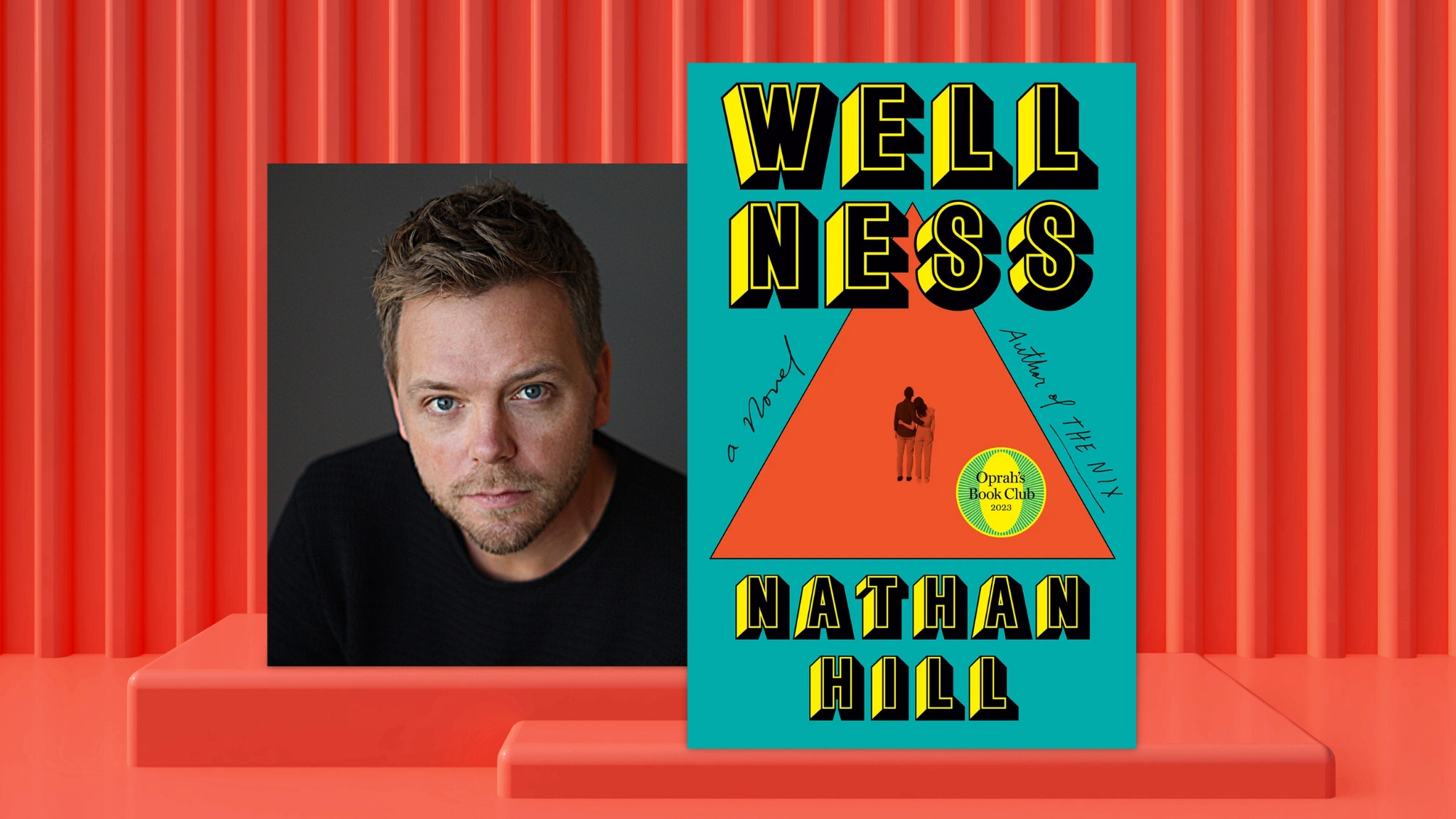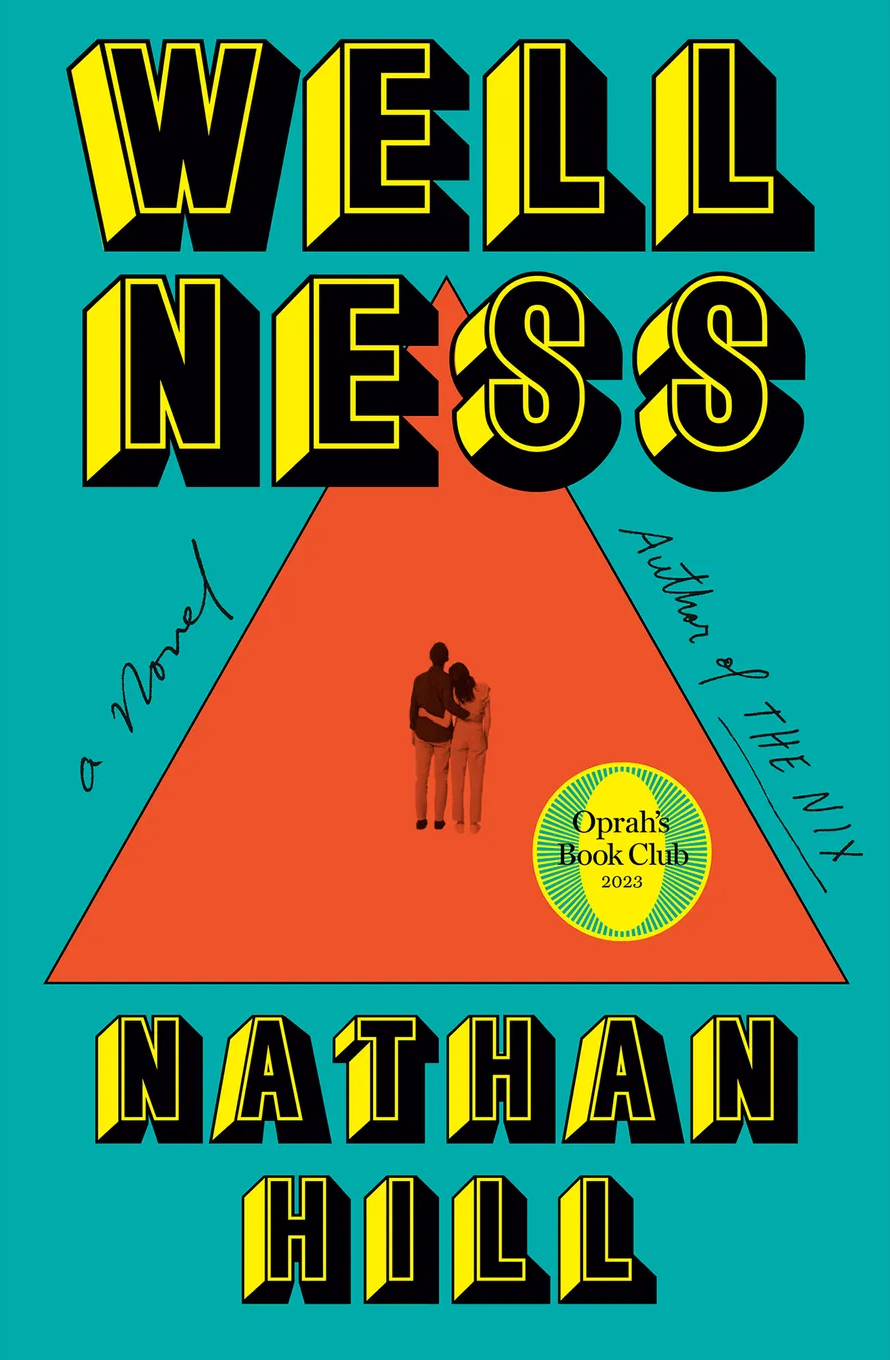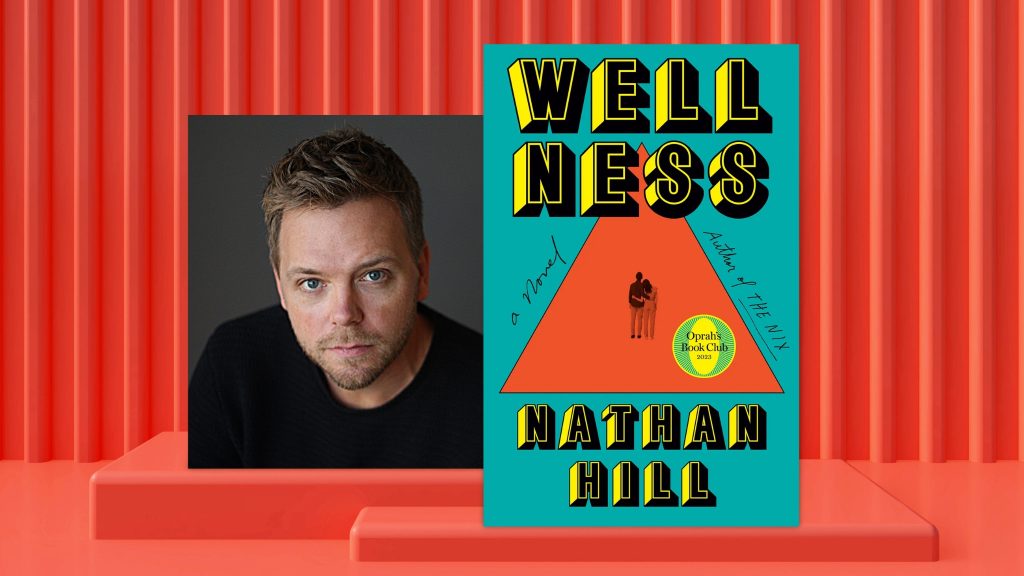
Wellness by Nathan Hill
What’s it About?
NYT best-selling author of “The Nix” is back with a poignant and witty novel about marriage, the often baffling pursuit of health and happiness, and the stories that bind us together. From the gritty ’90s Chicago art scene to a suburbia of detox diets and home-renovation hysteria, “Wellness” reimagines the love story with a healthy dose of insight, irony and heart.
Here’s a simple truth: Wellness by Nathan Hill (Alfred A. Knopf) is one of the best books I’ve ever read.
It is poignant, thought-provoking, all-encompassing, insightful and expertly written — and packed with truths of its own about our world and ourselves. It paints a full-length picture of a relationship so real and revealing I found myself retracing events of my own life (isn’t that what great literature does) and finding far too many similarities — in makeup, emotion and understanding, if not specifics.
Wellness is Hill’s first book since his 2017 debut stunner The Nix, a highly celebrated novel that explored — with the author’s quick humor and tender yet taut life observations — the resilience of love and home, even in times of radical change.
As much as this book is about the meeting and matrimony of Jack Baker, a Kansas-bred photographer and teacher, and Elizabeth Augustine, searching to break from her wealthy New England family roots, it is so much more. Hill hits upon technology, health, wellness, social media, art appreciation (and non-appreciation), medicine, finance, parenthood, community, education and the human psyche so thoroughly as to be the unofficial mouthpiece for an entire culture and generation.
Their apartments are directly opposite each other’s in adjacent buildings in a Bohemian Chicago neighborhood, separated only by a narrow alleyway. He “peeks in” on her life, able to observe her while his lights are off and hers are on. Little does he know she is doing the same thing when the lights are reversed. They meet by chance at a local bar and immediately connect.
Cut to 20 years later when priorities change from young romance to the realities of parenthood and down payments. They have a son and are investing in a speculative condominium, designed for the “modern” couple (with separate master bedroom suites, to account for statistics that indicate the high rate of failed marriages).
He has limited success as a photographer and part-time art teacher. She works at — and eventually runs — a wellness clinic named, well, “Wellness,” a research lab that studies the ailments of the mind and body and how to cure them.
Through it all, there’s the search for the ultimate truth — and an exploration of what masks it.
It has been said that we all create our personal movies, dramatize in our own heads, our day-to-day travails as if they were fit for Hollywood. And within these fictionalized scripts we compartmentalize our existence, often to fit our movie, and carry on believing this narrative is at the heart of our very soul. Within this world, one finds his or her own safety and security.
That’s the first folly.
Then there’s the matter of perspective, the lens through which one observes the world and defines it based on that vantage point. Trouble is the view changes over time — what worked one day doesn’t work the next, as people and societal norms undergo transformation.
“That illusion only works when you’re standing in exactly the right spot to observe it,” Dr. Sanborne, founder of Wellness, tells Elizabeth. It’s like getting used to a new pair of eyeglasses. “If you move one step left or right, the illusion falls apart. And people do this all the time, in life. They find a view of the world that agrees with them, a spot that feels safe and secure, and they plant themselves on that spot and never move.” To do so would be too scary, so they “prefer their illusions.”
People spend a great deal of energy trying to be “normal” and “fitting in.” But is that their true selves? “For them, the fun-house mirror is not fun. They feel challenged by what they see there, the image of someone as ghastly and unpresentable as they feel they really are on the inside.”
Great fiction requires intense research from the author to write in such intricacy and authority on particular topics and characters. Hill follows the upbringings of Jack and Elizabeth, in the plains of Kansas and the estates of Connecticut, to make the straight-as-an-arrow connection of what drove them to their destinies and how their union seems the perfect outcome. Along the way, readers get everything from an Intro to Medicine college-level course, Psychology 101, a history of the algorithms driving social media (and their eventual profound effect on the relationship between Jack and his father), an inside look at real estate financing, and much more.
Hill’s writing conjures images to which many of us relate but can never put into eloquent words, from the explosion of tomato sauce over the inside of our previously pristine microwave ovens to observations of the late-night corporate working world: “the buildings that touch the clouds on thickly overcast days, their colossal flat faces inscribed with hundreds of tiny yellow squares where the business of the city works overtime.”
What’s best about Wellness is the way Hill so accurately observes our habits and foibles, has his finger on the pulse of human nature, and is a most adept storyteller using words, imagery, and emotion to carry the day. Wellness is about “exposing the mind’s follies,” whether it’s a medical remedy that is nothing more than what the mind wants to believe it is, a series of prized paintings that to the average observer don’t look like much of anything, or the games people play to feel comfortable in their own skins and strive for a normalcy that in truth they don’t really want or can’t really find.
What happens when one partner wants to forsake the drab but consistent life the couple thought it desired and craves for more adventure? Is this a breaking of the pact? Or a shifting of the goalposts in the rules of the game? Or are two lovers merely drifting apart?
Hill provides us with every consideration on these points in a smart, absorbing tour de force that has the makings of an instant classic.
There’s an expression the author uses twice in the book, once when Jack first meets Elizabeth and later when Jack’s sister invites him out in the early Kansas dawn to paint the plains with her. The expression is an awkward but strangely memorable variation on a slightly longer, more common set of words — a simple, unique and most definitively Hillish invention, odd and delightful, that I will use to invite readers into this very special work: “Come with.”
And in so doing, again in the words of Wellness’s Dr. Sanborne, “Believe what you believe … but believe gently. Believe compassionately. Believe with curiosity. Believe with humility. And don’t trust the arrogance of certainty.”
RELATED POSTS:
Oprah announces Wellness as her latest book club pick
About Nathan Hill:
 Nathan Hill’s bestselling debut novel, The Nix, was named the #1 book of the year by Audible and Entertainment Weekly and one of the year’s best books by The New York Times, The Washington Post, NPR, Slate, and many others. The Nix was the winner of the Art Seidenbaum Award for First Fiction from the Los Angeles Times and was published worldwide in more than two dozen languages.
Nathan Hill’s bestselling debut novel, The Nix, was named the #1 book of the year by Audible and Entertainment Weekly and one of the year’s best books by The New York Times, The Washington Post, NPR, Slate, and many others. The Nix was the winner of the Art Seidenbaum Award for First Fiction from the Los Angeles Times and was published worldwide in more than two dozen languages.
Hill’s nonfiction has appeared in Wired, ESPN the Magazine, Poets & Writers, and the New York Times Book Review. His short stories have been published in many literary journals, including The Iowa Review, Agni, The Gettysburg Review, The Denver Quarterly, and Fiction, which awarded him its annual Fiction Prize. A native Iowan, Hill lives with his wife in Naples, Florida.

Publish Date: 9/19/2023
Genre: Fiction
Author: Nathan Hill
Page Count: 624 pages
Publisher: Knopf
ISBN: 9780593536117

